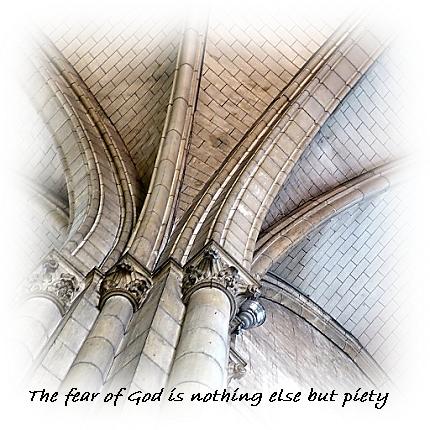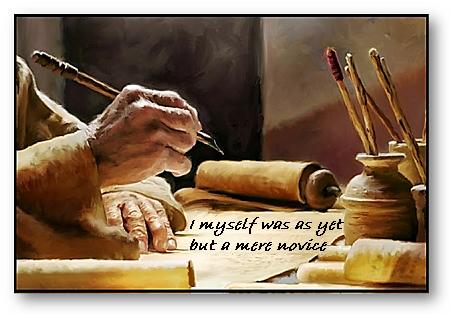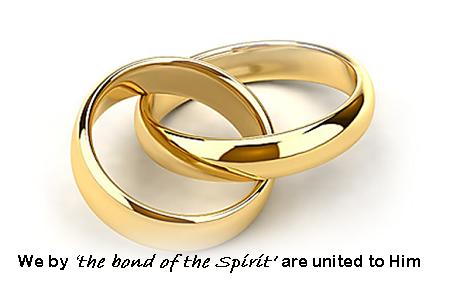Piety, According to John Calvin
Piety, According to John Calvin

The concept of piety (Latin: pietas) plays a very important role in the life and theology of John Calvin. Therefore it should not surprise us that there is a considerable number of books and articles on this subject.1 However, in the tidal wave of studies published during the commemoration of Calvin’s 500th birthday in 2009, relatively little attention has been paid to his view on piety.
Nevertheless it is commonly agreed upon that piety is one of the major keys to unlock some of the riddles of his personal life as well as a number of the complexities of his theology. His theological teaching is firmly rooted in a desire to promote true piety in those that listen to him and read his writings. In the preface to all editions of his Institutes he writes that initially it was his sole purpose in writing this work ‘to transmit certain rudiments by which those who are touched with any zeal for religion may be shaped to true godliness (pietas)’. Therefore it is not surprising that Calvin calls the first edition of his Institutes a ‘summary of true piety’ (summa pietatis). Maybe John McNeill exaggerates somewhat when he says that the theology of Calvin is ‘his piety described at length’.2 Yet it is most definitely true that the motive of piety is one of the major constitutive factors of his theological thinking. The same may be said about Calvin’s view on the spiritual life of the believers, including his own personal piety. In one of his commentaries he writes: ‘You will do the thing of greatest value, if with all your zeal and ability you devote yourself to piety alone. (...) Piety is the beginning, middle and end of Christian living. Where it is complete, there is nothing lacking. (...) Thus the conclusion is that we should concentrate exclusively on piety, for when once we have attained to it, God requires no more of us...’3 In the light of all this the statement of the Reformer is hardly surprising that when he was unexpectedly and miraculously converted by God he ‘received some taste and knowledge of true piety’.4 This captivation with piety increased when he grew older. The conclusion we may draw from this brief impression may be best formulated in Calvin’s own words: ‘The whole life of Christians ought to be a sort of practice of piety...’.5
1. What is ‘piety’?⤒🔗
However, in view of these introductory remarks the question becomes urgent: ‘What does Calvin understand by “piety”? How does he define this concept?’ I will answer these questions by first of all quoting some passages from the works of Calvin in which he presents more or less a summary statement of what his view on piety is. At the end of this paragraph I will quote the most complete definition of piety I have found in the work of the Reformer of Geneva. In the next paragraphs I will elaborate on a few key-elements of this definition.
Piety and Fear of God←↰⤒🔗
We should first of all observe that Calvin uses ‘piety’ and ‘the fear of God’ interchangeably. According to him these expressions are synonymous or – maybe stated more correctly – almost synonymous. A few quotations from the works of Calvin may suffice to illustrate this. He writes for instance: ‘The fear of God is nothing else but piety...’6 ‘...in true piety, that means in the fear of his name...’7‘...people who are touched by no fear of God or by no sense of piety...’8‘...we are not conformed to the fear of God and do not learn the rudiments of piety, unless we are violently slain by the sword of the Spirit and brought to nought’.9 Moreover, when Calvin translated the Latin text of the last edition of his Institutes (1559) into French (1560), he rendered the Latin ‘true piety’ (vera pietas) into French by ‘piety and the fear of God’ (pieté et crainte de Dieu). He also occasionally translated the Latin ‘piety’ into French simply as ‘the fear of God’, or ‘the fear of God’ in Latin as the French ‘the true piety’. Therefore the conclusion is legitimate that he used these two expressions more or less interchangeably.10
 ←↰⤒🔗
←↰⤒🔗
Piety and the Word of God←↰⤒🔗
According to Calvin piety and its related concepts are closely connected with the Word of God. The Scriptures are both the only source as well as the single norm for piety. Numerous expressions in the works of the reformer of Geneva underscore this principle. First of all he calls the Word of God the only rule or standard according to which true piety should be measured.
‘Let us realize’, Calvin writes, ‘that the truth and the sound teaching of the Word of God is the rule of piety’.11
This implies that there is no true piety without a saving knowledge of the truth of the Scriptures, or – to state it slightly differently – without true saving faith. Therefore the reformer observes:
Knowledge is the basis of life and the first doorway to godliness. None of the spiritual gifts can be of any use for salvation until we are enlightened with the knowledge of God by the teaching of the Gospel.12
In the light of these kinds of statements it is not surprising that Calvin calls ‘knowledge of the truth’, or ‘the knowledge of faith the only foundation of true piety’.13
True and False Piety←↰⤒🔗
The reverse side of what has just been stated is that the Reformer of Geneva repeatedly and seriously warns against different forms of false piety which transgress the boundaries set by the Word of God. In this context Calvin usually speaks of the dangers of hypocrisy (hypocrisis), superstition (superstitio), impiety (impietas) and error (error).14 He writes for instance: ‘Besides, while some may evaporate in their own superstitions and others deliberately and wickedly desert God, yet all degenerate from the true knowledge of him. And so it happens that no real piety remains in the world’.15 Or, a bit further, he states in connection with hypocrisy: ‘This, however, is but a vain and false shadow of religion, scarcely even worth being called a shadow. From it one may easily grasp anew how much this confused knowledge of God differs from the piety from which religion takes its source, which is instilled in the breasts of believers only. And yet hypocrites would tread these twisting paths so as to seem to approach the God from whom they flee’.16 Calvin uses terms like hypocrisy, superstition etc., to denounce in an almost monotonous regularity the doctrines and practices of the Roman Catholic Church which are offensive to him. However, he also emphatically reiterates that there are hypocrites and superstitious people within the Reformed community of Geneva.17 Actually, in his 1559 edition of the Institutes, he formulates a kind of summary statement in which he classifies the different ways in which people may stand before an holy God. He writes:
‘Men are either,
- endowed with no knowledge of God and immersed in idolatry, or
- initiated into the sacraments, yet by impurity of life denying God in their actions while they confess him with their lips, they belong to Christ only in name; or
- they are hypocrites who conceal with empty pretences their wickedness of heart, or
- regenerated by God’s Spirit, they make true holiness their concern’.18
Obviously Calvin only considers the fourth category to be true believers. According to him the first group merely consists of unbelievers, while the hypocrites fall under the headings two and three. For although he only uses the word ‘hypocrites’ in connection with the third category, Calvin also regards people that belong to the second as such. The difference between the two groups amounts to this: people who are confessing members of the church but deny the Lord by their sinful lifestyle, openly show their hypocrisy. In the lives of people belonging to the other category there are no outward signs of their hypocrisy. Nevertheless they do not truly fear God from the bottom of their heart. Their spirituality is a mere pretence and their ‘piety’ is a manifestation of counterfeit-faith.

Calvin’s thoughts on hypocrisy clearly show that he distinguishes between true and false piety. This distinction also plays an important role in his sermons. Nevertheless, his preaching may not be labelled as ‘discriminatory’ in the same sense as preachers discriminated between different classes of hearers within the circles of English Puritanism or the Dutch Second Reformation. Calvin’s distinctions are much less elaborate and systematized than in these movements. They are also much more dynamically structured according to the actual meaning of the biblical text. Nevertheless, the distinction between ‘true’ and ‘false’ is a vital element of Calvin’s concept of piety.
The Double Aspect of Piety←↰⤒🔗
In view of what has been stated up till now, the question arises: ‘What is the positive content of true piety according to Calvin?’ As has already been indicated, the reformer uses the word piety to describe the entire life of a true Christian with all its implications. However, he usually makes a distinction between two aspects of piety: on the one hand it consists of love towards God as Father and on the other hand it fears and reveres Him as Lord. This definition may already be found in some of Calvin’s earliest writings in his career as a Reformer. So we read in his first catechism of 1537:
True piety does not consist in a fear which willingly indeed flees God’s judgment, but since it cannot escape is terrified. True godliness consists rather in a sincere feeling which loves God as Father as much as it fears and reverences Him as Lord, embraces his righteousness, and dreads offending him worse than death. And whoever have been endowed with this godliness dare not fashion out of their own rashness any God for themselves. Rather, they seek from him the knowledge of the true God, and conceive him just as he shows and declares himself to be.19
As far as I can see, this is the most all-embracing definition of piety which may be found in Calvin’s work. We highlight its two key-elements. First of all, the double aspect of piety is clearly emphasized: it first of all consists in love to God and trusting in Him as Father and secondly in love to God and walking before Him in fear and holiness.20 We may also say this more dogmatically: True piety, according to John Calvin, consists in justifying faith and sanctification of life. However, also another important concept is underscored in this definition. True piety seeks the knowledge of God from Himself. She conceives Him just as he shows and declares himself to be in his Holy Word. We will elaborate on these two aspects. But before this, another question first has to be addressed briefly.
2. The Historical Context of Calvin’s Piety←⤒🔗
There is some discussion on the matrix or the historical roots of Calvin’s view on piety. Some scholars argue that his concept is heavily indebted to the rhetorical tradition of contemporary humanism. They stress that the young Calvin was trained as a humanist scholar, which is true. Therefore, his piety was stamped by biblical humanism and was very similar to the spirituality of men like Guilliaume Budé and Erasmus. It is even stated that Calvin, unlike Luther, usually avoided direct criticism on Erasmus, which is not true. Others have stressed that during his university education, Calvin has been deeply influenced by medieval theologians, both in his theology and in his spirituality. Names that have been mentioned in connection with this are Thomas Aquinas, Duns Scotus, William of Ockham and John Maior. But the evidence is very flimsy. Heiko A. Oberman has convincingly demonstrated how slippery and speculative this approach to the ‘roots’ of Calvin’s thinking and his spirituality is.21 Now it is obvious that the Reformer of Geneva has been influenced by the context in which he was educated and lived, as we all are. But there is no warrant to pinpoint one, two or three theological traditions as the main source of the way in which he thought and lived. On the contrary, to understand Calvin’s piety we should turn to his own biography, preferably in his own words. Therefore it will become evident that the decisive factor in Calvin’s own spirituality and the way in which he spoke about true piety is his own conversion. We may also say, his personal encounter with God and the power which the Word of God exercised in his life from that time on.

There is, however, a problem here. Contrary to Luther, Calvin is very reticent about his own spiritual experiences. ‘I do not like to speak about myself’, he wrote to Cardinal Sadoletus.22 Therefore, studies have been published entitled: ‘The riddle of the conversion of Calvin’.23 Nevertheless, there are a few hints in the works of the Reformer of Geneva in which he speaks about his conversion experience. I will quote the most well known passage, taken from the introduction to his Commentary on the Psalms (1557) in which Calvin writes:
And first, since I was too obstinately devoted to the superstitions of Popery to be easily extricated from so profound an abyss of mire, God by a sudden conversion subdued and brought to a teachable frame my mind, which was more hardened in such matters than might have been expected from one at my early period of life. Having thus received some taste and knowledge of true piety, I was immediately inflamed with so intense a desire to make progress therein, that although I did not altogether leave of other studies, I yet pursued them with less ardour. I was quite surprised to find that before a year had elapsed, all who had any desire after purer doctrine were continually coming to me to learn, although I myself was as yet but a mere novice and tyro (= recruit in the army; beginner).24
A few expressions in this passage need some explanation. First of all: what does Calvin mean with ‘a sudden conversion’? It does not necessarily refer to a conversion ‘in a split second’, like the conversion of the apostle Paul seemed to have taken place (Acts. 9:1ff.). Most likely it took place more gradually in the life of John Calvin, as is usually the case when we are acquainted with the Word of God from our youth. ‘Sudden’ here particularly refers to the totally unexpected character of Calvin’s conversion. Calvin was a more or less devout Roman Catholic, a young gifted humanist scholar who thought quite highly of his own capacities, but ‘beyond any human expectation’ (Oberman) God met him and touched him by His Word and Spirit.
Secondly, the expression ‘brought to a teachable frame my mind’ is even more difficult. The expression basically means that Calvin was ‘tamed’ or ‘subdued’ by God like a wild horse. Afterwards the Reformer of Geneva continually reiterates this principle in all his works and particularly in his sermons. Proud humanism – not only of the 16th century, but also the post modern variant – should be subdued by the authority of the Word of God. A next element is that his mind was ‘made teachable’, which implies that he was made ready ‘to learn’. The implication is that he was made submissive to the Word of God in order to learn from it continually.25 Finally, he expresses his desire to grow in the knowledge of the Scriptures and of true piety. Therefore, he concentrated more and more on the study of God’s Word and was apparently surprised that within no time others came to learn from him. Without realizing it, he had become an expositor or teacher of the Scriptures, which he would remain for the rest of his life.
3. Justification and Sanctification←⤒🔗
What is the secret of Calvin’s newly found faith and piety? By studying the Scriptures and experiencing its power, he discovered that the source of all true spirituality is communion (communio) with Christ.26 He strongly emphasizes the necessity for sinners to enter into communion or fellowship with Him.
For ‘Those who, by the kindness of God the Father, through the working of the Holy Spirit, have entered into fellowship with Christ, are set apart as Gods property and personal possession; and that when we are of their number we share that great grace’.27
This implies that when we by ‘the bond of the Spirit’ are united to Him, we participate in all His benefits.28 But what are these benefits? Calvin likes to summarize them under two headings: justification and sanctification. These two benefits are so closely related, that the reformer often speaks about them as a ‘twofold grace’ or a ‘twofold way of cleansing’.29 He explains this in the following manner:
By partaking of Him, we principally receive a double grace: namely, that being reconciled to God through Christ’s blamelessness, we may have in heaven instead of a Judge a gracious Father; and secondly, that sanctified by Christ’s Spirit we may cultivate blamelessness and purity of life.30

With all this in mind we return to the beginning of Calvin’s main definition of piety. There he emphasizes that this concept implies ‘a sincere feeling which loves God as Father (because of justifying grace) as much as it fears and reverences Him as Lord (because of sanctifying grace)’.
Justification←↰⤒🔗
Now there is something very remarkable in the way Calvin deals with justification and sanctification in the final edition of his Institutes. In book III he explains first, after an introductory chapter, what true faith is (ch. 2). In the next chapters, he discusses various aspects of sanctification (ch. 3-10), followed by an exposition of justification (ch. 11-14). Does this order mean that the reformer of Geneva considers sanctification as the basis of justification? The answer is no. For if that were the case Calvin would basically agree with the teaching of the Roman Catholic Church: good works and sanctity of life are at least partly needed in order to be justified before God. The reformer rejects this view whole-heartedly. But why does he use this order: justification after sanctification? Calvin explains this himself when he writes that after he had dealt with saving faith, ‘it was more to the point to understand first how little devoid of good works is the faith, through which alone we obtain free righteousness by the mercy of God’.31 Thus the order which Calvin chose, is closely bound up with the objections from Roman Catholic theologians against the reformed view. They accused the reformers that they made the good works null and void by stressing that man is justified by faith alone (sola fide). Calvin wanted to show that this is not true: saving faith is never without good works. Nevertheless, justification is not the consequence or the fruit of our sanctification. It is just the reverse: justification is ‘the main hinge on which religion turns’ and the source from which good works and a holy life flows.32 Calvin defines justification as follows: it is ‘the acceptance with which God receives us into his favour as righteous men. And we say that it consists in the remission of sins and the imputation of Christ’s righteousness’.33 Therefore, he concludes, ‘justification by faith is the sum of all piety’.34
Sanctification←↰⤒🔗
We may define sanctification both in terms of the call to holiness and the gift of holy living. Every Christian is urgently called to live according to the beneficial commandments of God and to consecrate himself to Him wholeheartedly. However, Calvin most often emphasizes that sanctification is first of all a gracious gift of God in Christ, as is evident from the following passage:
(Christ has) consecrated Himself to the Father that His holiness might come to us. For as the blessing is spread to the whole harvest from the first-fruits, so God’s Spirit cleanses us by the holiness of Christ and makes us partakers of it. And not by imputation alone, for in that respect he is said to have been made to us righteousness (1 Kor. 1:30); but He is also said to have been made to us sanctification, because He has, so to say, presented us to His Father in His own Person that we may be renewed to true holiness by His Spirit.35
In the light of these kind of expressions it is evident why Calvin speaks about the grace of sanctification which he closely connects with the grace of justification. Believers are justified for the purpose of living piously in order to worship God in holiness of life.36 Therefore true piety flows from the fountain of this double grace, as it loves Him as Father and reveres Him as Lord and King.

4. Word and Experience←⤒🔗
This double grace is offered to us in the Word of God and communicated and applied to us by the Holy Spirit. In this we receive the grace of faith and begin to live piously. That raises the urgent question: ‘What is the relationship between the Word of God and piety in Calvin’s thought?’ Of course, I have said already something about this topic by way of introduction: The Scriptures are both the only source as well as the single norm of piety. But what does this imply for the practice of piety? To answer this question we should reflect on the vital relationship between the Word of God and the experience of faith in the theology of the Reformers and of Calvin in particular. It is quite remarkable that Calvin repeatedly stresses that ‘Experience teaches us that...’, or: ‘We know by experience...’ What does he mean with these kind of expressions? Sometimes they have a very wide meaning, especially in his commentaries. They simply want to state: ‘The general experience of us humans clearly shows that what has been written here, is indeed true’. In this way Calvin wanted to place his theology and his explanation of the Scriptures at the centre of the reality of our lives. However, experience (experiential) can also explicitly be joined to the Word of God, or, stated more accurately, be embedded in the Word of God. That is often formulated by the reformer in the pair: ‘The Word ánd experience teach us’. One of the most clear evidences is to be found in a passage from his catechism of 1537. In the introduction to his explanation of the Apostles’ Creed, Calvin discusses the Trinity and then writes:
Lest anyone may be perturbed that we confess we believe in Father, Son and Holy Spirit, we must say a few preliminary things about this matter. When we name Father, Son and Spirit, we are not fashioning three gods. Both the Scriptures as well as the experience of piety show us the perfect simple unity of God the Father, His Son and His Spirit.37
The last sentence is of particular importance, and in it especially the words: ‘Both the Scriptures as well as the experience of piety show us’. Calvin places the Scriptures and the experience (of faith) beside each other as ‘teachers’ (magistrae) which supply us with the true knowledge of the Triune God. In this way he opposes a speculative approach to the doctrine of the Trinity in an implicit manner. For by placing the Scriptures as foremost source and norm for the knowledge of the Triune God, he rejects every philosophical reflection which exceeds the limits of the Word. And when he adds the living experiential knowledge of faith to this, he opposes an exclusively intellectual approach to the biblical truth. For in the knowledge of the Triune God we are concerned with the practical experiential knowledge of faith and the living fellowship with Him. Let it be clear that the sequence in the pair ‘Scripture and experience’ is not arbitrary. According to Calvin experience originates from the Word and is therefore subject to the Word.38 This is underscored in the following sentence on this subject which nearly bears the nature of a definition of the relationship between Word and experience: ‘Indeed, with experience as our teacher we discover that God is exactly as He has revealed himself in His Word’.39 If the Word is the heartbeat of all theological activity and spiritual life, she should continually be accompanied by the echo of piety. With Calvin, learning and piety go hand in hand. This essentially also counts for our personal spiritual life. Knowledge of the Scriptures should be embedded in an experiential piety. We find this same emphasis in the definition of piety of the reformer. For, as we saw, there he states:
Whoever have been endowed with this godliness dare not fashion out of their own rashness any God for themselves. Rather, they seek from Him the knowledge of the true God, and conceive Him just as he shows and declares himself to be.
5. The Work of the Holy Spirit←⤒🔗
But what is the origin of this piety? With Calvin it is completely clear that all spiritual life is accomplished by the Holy Spirit, and that He does this by means of the Word. It’s not without reason that Calvin is called ‘the theologian of the Holy Spirit’.40 Particularly in the third chapter of his Institutes he offers an extensive review of the work of the Spirit. There topics are discussed which are later on ranked under the heading of the order of salvation: faith, regeneration, conversion, justification, etc. Of course all kinds of aspects of the living experience of faith are continually discussed here. However, it is remarkable that Calvin in this context also brings up themes which practically entirely belong to the area of piety. So these are not included in the order of salvation in later reformed dogmatics. This refers to things like: self-denial, bearing the cross, meditation on the future life and prayer.41
Especially the chapter about prayer calls for our attention, certainly when we look at its length, for this is the longest section in the entire Institutes.42 Here Calvin expounds his view on prayer and also on the life of prayer. It is an exceedingly practical chapter. Now many of the numerous prayers have been preserved, which Calvin uttered on various occasions.43 This offers us an opportunity to compare his instruction in the Institutes with the practice of his own prayers. It appears that these two match together perfectly. What is most conspicuous in the prayers of the reformer is at the one hand the tone of deep humility and on the other hand the firm confidence in the grace of Christ. I give an example of a prayer at the close of one of his lectures.
Grant, Almighty God, that since we are loaded with so many vices, and provoke thee so often, yea, daily and in ways innumerable, – O grant, that we may not at last become hardened against thy godly admonitions, but be teachable and submissive and in time repent, lest our wantonness and hardness should constrain thee to put forth thy powerful hand against us; but as we have hitherto experienced thy paternal kindness, so may we in future be made partakers of it, and thus become more and more accustomed to bear thy yoke, until having at length completed our warfare, we shall come to that blessed rest, which has been provided for us in heaven, through Christ our Lord. – Amen.44

When we look more closely at Calvin’s confidence in the mercy of Christ, I want to refer to the end of his discussion of the 12 articles of the Apostles’ Creed in the final edition of his Institutes. This is an ode to the grace of Christ and one of the most beautiful parts of the entire book. There he states that all of the aspects of our salvation are to be found in Christ. He then recites:
We see that our whole salvation and all its parts are comprehended in Christ (Acts 4:12) We should therefore take care not to derive the least portion of it from anywhere else. If we seek salvation, we are taught by the very name of Jesus that it is ‘of Him’ (1 Cor. 1:30). If we seek any other gifts of the Spirit, they will be found in His anointing. If we seek strength, it lies in His dominion; if purity, in His conception; if gentleness, it appears in His birth. For by His birth he was made like us in all respects (Heb. 2:17) that he might learn to feel our pain (cf Heb. 5:2). If we seek redemption, it lies in His passion; if acquittal, in His condemnation; if remission of the curse, in His cross (Gal. 3:13); if satisfaction, in His sacrifice; if purification, in his blood; if reconciliation, in His descent into hell; if mortification of the flesh, in His tomb; if newness of life, in His resurrection; if immortality, in the same; if inheritance of the Heavenly Kingdom, in His entrance into heaven; if protection, if security, if abundant supply of all blessings, in His Kingdom; if untroubled expectation of judgment, in the power given to Him to judge. In short, since such a rich store of every kind of good abounds in Him, let us drink our fill from this fountain, and from no other.45
6. In Closing←⤒🔗
This experiential piety also becomes evident in Calvin’s entire personal life. For him this especially implies: serving God and Christ unremittingly. The utmost consequences of this conviction for his own life become clear from the two motto’s which are attributed to him. The one is: ‘This broken heart I offer Thee unreservedly’ (‘cor mactatum tibi offero’) and the second: ‘Let me be consumed in His service’, or, more literally translated: ‘Let me be worn out so long as I am useful (for the cause of Christ)’ (‘terar dum prosim’). Calvin actually states here that he sacrifices his entire life in the service of Christ and for the honour of God. Perhaps it is this in which the deepest mystery of Calvin’s piety is revealed. For sacrifice is the highest manifestation of love.46

Add new comment